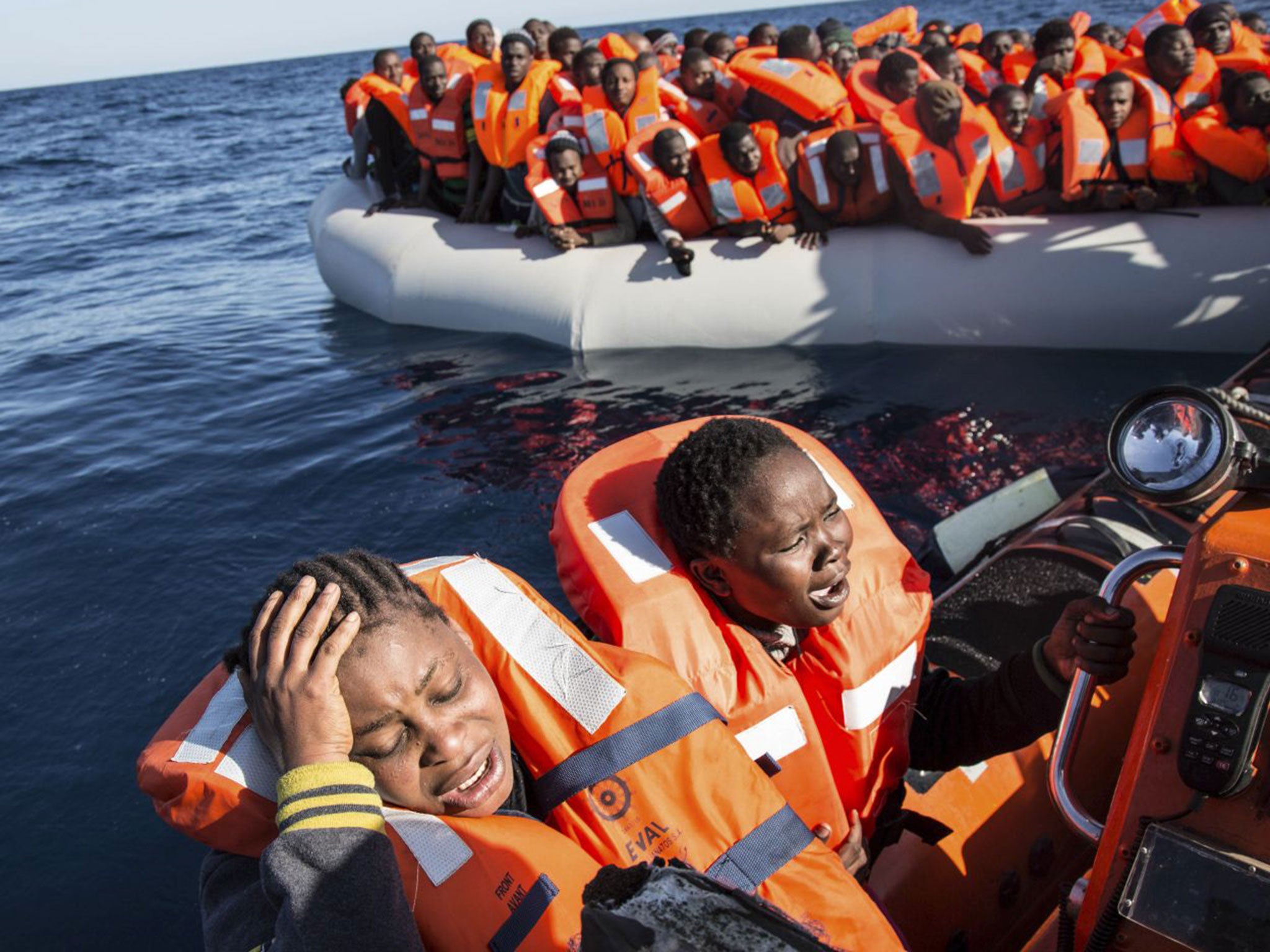How we see refugees could be changed by 'subtle shifts' in language, psychologists find
Simply using phrases like 'refugees in a group' instead of 'a group of refugees' can have dramatic impact, study suggests

Using phrases like 'refugees in a group' instead of 'a group of refugees' could boost empathy for migrants, asylum-seekers and other dehumanised groups, a psychologist has found.
Defining empathy as perceiving how others have the ability to feel and think, the University of North Carolina's Kurt Gray examined "how subtle shifts in framing can alter the mind perception of groups", according to his paper in the Journal of Experimental Psychology.
He found that while "people generally perceive groups to have less mind than individuals... changing the framing of a group from 'a group of people' to 'people in a group' substantially increases mind perception – leading to comparable levels of mind between groups and individuals."
Mr Gray asked participants in his study to assess workers in a fictional accounting firm. He was looking at both "agency", or the ability to process thoughts and decisions, and "experience", here meaning the ability to understand events through emotion.
One group were asked about specific members of the firm, another were asked about "an accounting company comprised of 15 people", and a third about "the 15 people who compose an accounting company."
Participants asked about "a company comprising of people" were far less likely to describe those people as capable of experiencing emotion, and a little less likely to say they possessed rational agency.

But participants asked about the "people comprising the company" rated them as equally capable of thoughts and decisions as the named, individual workers – and even more capable of experiencing emotion.
Mr Gray concludes: "This change in framing influences people’s sympathy for groups." While the research does not specifically address refugees, it can evidently be applied to the ongoing, global refugee crisis – saying "15 asylum-seekers arrived in a boat" for example.
There are now 5 million refugees in countries like Jordan and Turkey which share a border with war-torn Syria, while up to two million people have sought refuge in Europe across the last few years.
Around 65 million people were living in displacement across the globe in 2015, according to the UN, meaning one in every 113 people in the world is a refugee.
Previous studies have found that the media systematically dehumanises refugees, while the then-Prime Minister David Cameron was among those criticsed for referring to asylum-seekers in the Calais Jungle camp as a "swarm".
Join our commenting forum
Join thought-provoking conversations, follow other Independent readers and see their replies
Comments
Bookmark popover
Removed from bookmarks